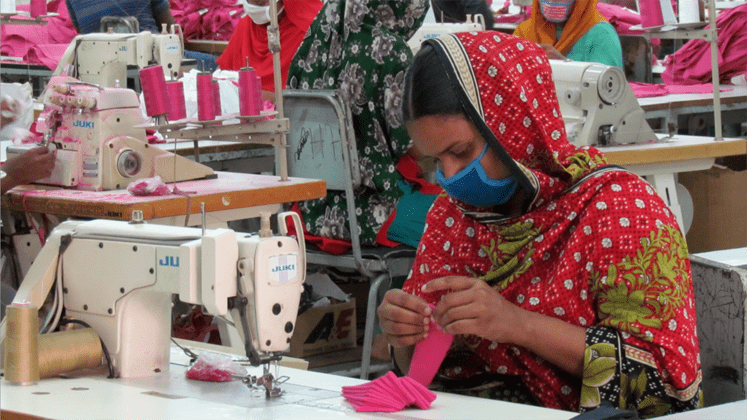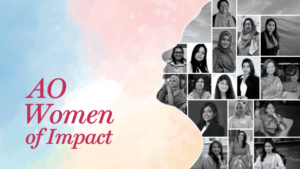
The Readymade Garments Sustainability Council or RSC is an initiative to carry forward the accomplishments made in workplace safety in Bangladesh even as it conducts structural, electrical, fire and boiler safety inspections, supports and monitors remediation, conducts safety training and operates an independent safety and health complaints mechanism available to workers in apparel factories in Bangladesh.
The national RSC was set up to take over the technical responsibilities of the Accord – the garment manufacturers, global brands and retailers, global unions and their Bangladeshi affiliates’ national initiative to carry forward the significant accomplishments made on workplace safety in the country.
Accord, a platform of more than 220 mostly European brands, buyers and trade unions, was formed immediately after the Rana Plaza building collapse in 2013 for five years, which ended in May 2018. Later, the Government allowed a six-month extension to the Accord until 30 November 2018 while in May 2019, the Supreme Court allowed the Accord to continue its activities for 281 more days after it signed a memorandum of understanding (MoU) with the BGMEA.
On 15 January 2020, the Accord Steering Committee signed an agreement with the BGMEA on the transition to an RMG Sustainability Council, as well as the Memorandum and Articles of Association that establish the new body even as the transition agreement between the Accord and the BGMEA reportedly outlined the key principles and steps in the transition from the Accord to the RMG Sustainability Council (RSC).
So even as the agreement for the transition, Accord was to end on 31 May 2021, only two clothing retailers reportedly agreed to renew their contract even as the Accord website underlined over 190 brands had committed to be signatories to the agreement — the agreement acts as a binding safety programme, where signatories can only source from the Accord-certified factories. Failing to do so could subject them to litigation — which was formulated just weeks after the collapse of Rana Plaza in 2013.
Some of the signatories were the biggest retailers like Primark, Tesco, H&M, American Eagle Outfitters, Marks & Spencer, Inditex, Benetton, Adidas and Loblaw even if only the British brand ASOS Ltd. and the German brand Tchibo have reportedly agreed to renew the contract and lately the global unions like IndustriALL have been stating that without the Accord, nothing can legally stop brands from buying from suppliers who are not compliant.
According to the Clean Clothes Campaign (CCC), the Accord has been working with over 1,600 factories, but the database showed that not all have completed the steps needed to make them hundred per cent compliant. For example, as many as 130 factories working with Accord were yet to achieve even 50 per cent of the remediation recommended to make them safe and compliant while a total of 580 of Accord’s factories have completed over 90 per cent of the remediation.
On 1st June 2020, the RMG Sustainability Council (RSC) took over the Accord in Bangladesh with the mandate to continue with factory inspections, remediation monitoring and workplace programmes.
“RSC is the successor of Accord in Bangladesh, and they can hold factories accountable. But with the RSC, there is no legal obligation for brands. Accord is legally binding, so the brands can be taken to court. No matter what we do locally, the brands need to be held accountable. Factories are safe only when brands can be held accountable,” underlined the President of the Bangladesh Garment and Industrial Workers Federation and Founder of the Bangladesh Centre for Worker Solidarity, Kalpona Akhter.
It may be mentioned here that in the report published recently by the CCC, Worker Rights Consortium, Maquila Solidarity Network and Global Labor Justice reportedly found that 12 leading brands who are signatories to the Accord were still sourcing from factories which have not finished remediation.
The report, titled Unfinished Businesses: Outstanding Safety Hazards at Garment Factories Show That the Accord Must Be Extended and Expanded reportedly named 12 brands – Aldi Nord, Aldi Süd, Bestseller, C&A, H&M, Lidl, Lindex, Loblaw, PVH, Varner Group, WE Fashion and Zeeman even as it maintained, “Every brand included in this report is fully aware of the safety deficiencies at its factories in Bangladesh and receives regular reports on these from the Accord.”
H&M for example was named for sourcing from 118 factories without safe exits, 159 factories without fire alarms and 163 factories without fire suppression systems.
In response, the brand said, “The numbers referred to in the report Unfinished Business do not mean that factories lack these safety mechanisms. It can refer to the fact that these mechanisms are in need of maintenance or do not have adequate size according to international safety standards. Some of the issues stated in the report have already been corrected, but due to lockdowns and fewer factory visits because of COVID-19, the Accord has not been able to verify these corrections.”
Bestseller was named in the report for sourcing from 70 factories without safe exits, and 90 factories without fire alarms.
In response, the brand stated, “COVID-19 has made it challenging for RSC personnel to officially verify improvements, as on-site visits have been suspended. Therefore, much progress has not been officially recorded, and is therefore not reflected in these figures.”
Meanwhile, according to media reports, in a letter issued on 29 April, the BGMEA reportedly underlined, “The BGMEA has the greatest respect for the global trade unions and their affiliates. At the same time, we, from the industry side, strongly stand by the principles on which the RSC was founded. It is a national initiative with global standards. It is not going to be commanded by any external authority. The Accord expired in 2018 and there has been no accepted extension. We do not recognise the transition by Accord and neither does the Government of Bangladesh, which will expire on 31 May 2021. Any other extension or new Accord will similarly not be recognised and will not be a part of any initiative related to the safety Bangladesh is looking forward to. We like to point out that no organisation or authorities like Accord exist anywhere in the world where garments are manufactured.”
However, even as the Accord was about to expire (on 31 May 2021), brands/retailers and unions agreed on three-month extension. The global unions and negotiating signatory companies announced that they agreed upon a three-month extension of the Accord on Fire and Building Safety in Bangladesh to allow for more time to conclude negotiations on a new binding safety agreement.
The witness signatories to the Accord – CCC, International Labor Rights Forum/Global Labor Justice, Maquila Solidarity Network and Worker Rights Consortium – have welcomed the fact that the extension will continue to bind the Accord member brands to the same obligations as under the current Accord. The extension, however, is no more than a respite that maintains the status quo, they underlined while adding that the question at hand is still the same: will the Accord’s signatory brands agree to a new binding safety agreement that ensures the safety work in Bangladesh remains individually enforceable upon brands, keeps an independent secretariat in place that oversees the brands’ compliance, and allows for expansion to other countries?
Without such an agreement, brands’ efforts in Bangladesh will amount to no more than the kind of self-monitoring practices that failed to prevent the Rana Plaza building collapse, they underlined.






